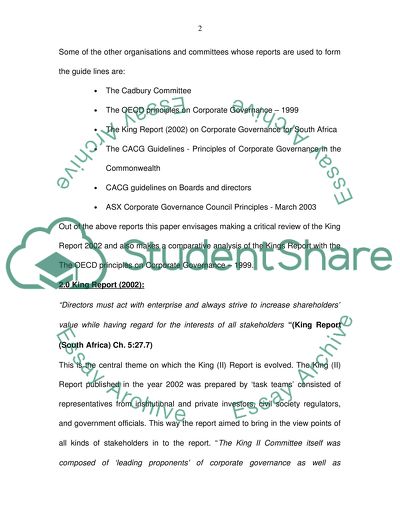Cite this document
(“King Report on Corporate Governance Essay Example | Topics and Well Written Essays - 2500 words”, n.d.)
King Report on Corporate Governance Essay Example | Topics and Well Written Essays - 2500 words. Retrieved from https://studentshare.org/miscellaneous/1516797-king-report-on-corporate-governance
King Report on Corporate Governance Essay Example | Topics and Well Written Essays - 2500 words. Retrieved from https://studentshare.org/miscellaneous/1516797-king-report-on-corporate-governance
(King Report on Corporate Governance Essay Example | Topics and Well Written Essays - 2500 Words)
King Report on Corporate Governance Essay Example | Topics and Well Written Essays - 2500 Words. https://studentshare.org/miscellaneous/1516797-king-report-on-corporate-governance.
King Report on Corporate Governance Essay Example | Topics and Well Written Essays - 2500 Words. https://studentshare.org/miscellaneous/1516797-king-report-on-corporate-governance.
“King Report on Corporate Governance Essay Example | Topics and Well Written Essays - 2500 Words”, n.d. https://studentshare.org/miscellaneous/1516797-king-report-on-corporate-governance.


